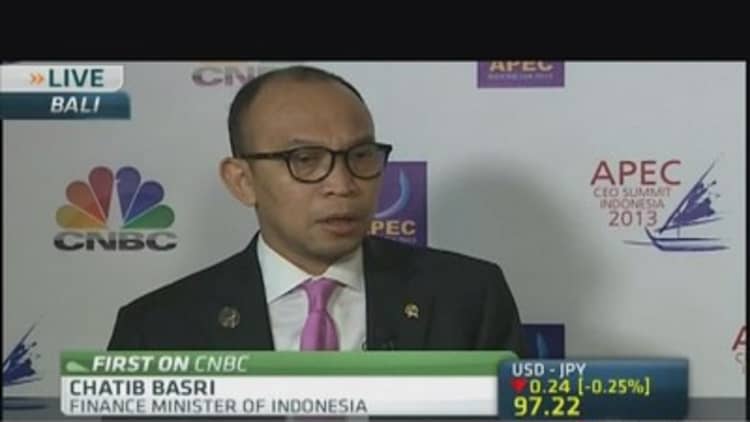With India, Indonesia, Brazil and South Africa scheduled to hold presidential or general elections within the next 12 months, politics are set to be a key driving force in emerging markets.
The elections will be scattered throughout 2014, with South Africa's general election to be held between April-July, India's general election to be held by May, Indonesia's presidential election due in July and Brazil's presidential election set for October.
"These countries will see a change of administration at a time when all their economies are coming off the boil, which really ramps up the risks surrounding the elections," said Stephen Wilford, director, Asia Pacific, Global Risk Analysis at Control Risks.
(Read more: Emerging markets to shake up Fortune 500 list)
"The new leaders will have to try and execute structural reforms in an environment of slow growth, which makes the task all the more difficult," he added.

According to Alastair Newton, senior political analyst at Nomura, India's general election is the key one to watch.
(Read now: Soaring India stocks have strategists on edge)
"India looks to me to be a different story – that's where markets should be concentrating their attention in the emerging market elections next year," Newton told CNBC Asia's "Squawk Box" this week.
"If [Narendra] Modi does storm home with a solid plurality, we could see reforms which are going to lift India's growth not back to double-digits, but maybe back to 7-8 percent," he added.
Narendra Modi is the prime ministerial candidate for the main opposition Bharatiya Janata Party, which is seen as more market friendly and amenable to structural reforms than the ruling Congress party.

Indonesia, meanwhile, will get a new leader as the incumbent president Susilo Bambang Yudhoyono (SBY) is constitutionally barred from seeking a third term.
The prospect of reformist Jakarta Governor Joko Widodo being elected as president has gotten investors excited. Widodo, who has quickly risen to the top of opinion polls, is seen as a clean politician who has not used his governorship for personal enrichment.
(Read more: In Indonesia, a Governor at Home on the Streets)
Analysts, however, don't believe his election would be a game changer for the economy.
"In Indonesia, there's a real buzz and hope that the Jakarta governor can make a big difference. But he doesn't strike us as someone who is in favor of market friendly reforms. For example, he has agreed to a big increase in Jakarta's minimum wages, and he's also opposed the increase in subsidized fuel prices," said Robert Prior-Wandesforde, director of Asia economics at Credit Suisse.
Newton of Nomura says while the country's stock market will rally if Widodo becomes president, it will be a "false dawn." "I don't think Widodo will be any more successful with structural reforms than SBY has been," he said.
(Read more: Should US be treated like an emerging market?)
As for Brazil, recent opinion polls have confirmed current President Dilma Rousseff as the clear front runner, according to Reuters.
Similarly, in South Africa, the ruling African National Congress party is expected to win the elections next year.
—By CNBC's Ansuya Harjani; Follow her on Twitter: @Ansuya_H


